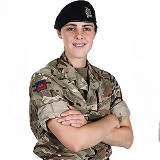*/

Developing the careers of female barristers through fairer work distribution and reducing the gender income gap – Amanda Pinto KC and Selena Jones distill the six key building blocks emerging from an ICAW event
ICAW (Inns of Court Alliance for Women) was set up in early 2022 by the four Inns to support women barristers in the development of their careers. It builds on the work of the Temple Women’s Forum and provides events, practical help and an online resource library.
Female barristers earn on average just over half (52%) of what male barristers take home.* Despite entering the profession at a similar rate to men, women’s progress is much less certain. Add in race or other intersectionalities, and the picture is even worse.
At Foundations for a Fairer Future – an ICAW event at Middle Temple last year – Mrs Justice McGowan, Treasurer of Middle Temple and former Chair of the Bar said now was the time to ‘move beyond the stage of kind words and good intentions’ to ‘achieving some practical movement’ for real progress to happen.
The event focused on developing the careers of female barristers through fairer work distribution and reducing the gender income gap.
Speakers were drawn from different professional backgrounds and experience yet several common themes emerged. The panel ranged from barristers in chambers, those instructing barristers from government/private sectors, to those managing barristers’ practices in chambers, and the equality and diversity consultant at the Bar Council.
In addition to equality of opportunity being ‘the right thing to do’, all agreed with David Stone of Allen & Overy on the business benefits of diversity:
The panel discussion was a rich seam to mine for guidance, feasible steps and practical tools (we summarise these below) and will serve as a benchmark for the development of diversity at the Bar and the effectiveness of measures to bring about change.
All speakers advocated data collection and analysis. Data provides the evidence of what is happening rather than relying on anecdote and good intentions. Data can identify outliers and anomalies and develop comparative groups, the latter being particularly beneficial to help chambers ascertain whether an individual is thriving, falling behind or on a par with their comparative group. Data can also detect whether people returning from parental leave are being given lower value work and the diversity and effectiveness of chambers’ pipeline for silk or career progression.
Rachel Krys, the Bar Council’s equality and diversity consultant, counselled against tackling everything at once: try to identify patterns in one group eg juniors under seven years’ practice – are some being led, or being led in stretching cases, more regularly? Or women returners – compare them against their comparative group at call level. The Bar Council publishes suggested groups in its Monitoring Work Distribution Toolkits which chambers can use to analyse data.
Use the information gathered from the data to better inform a barrister’s individual practice management. Chambers can support barristers to understand their market, the practice that they have and where they might focus instead or how to broaden and develop a more lucrative practice.
Use an agenda template for practice reviews so that no important points are overlooked erroneously eg practice aspirations, practice areas and expansion opportunities and ambitions, career path to silk or judicial appointment (which should always be considered well in advance of any application).
Again, data analysis is key. The Government Legal Department seeks to monitor levels of spend on individual panel counsel regularly. This detects low spend, raising questions of fairness and equal treatment as between those instructed. In private practice, Allen & Overy seeks to collaborate with chambers it regularly uses to increase the diversity of those instructed. Recommendations included:
Joanne Kane, former Chair of the Young Barristers’ Committee, suggested:
ICAW encourages a change of mindset and a sustained effort to close the gender income gap. When women’s earnings match those of their male colleagues, it will be in the economic interests of chambers generally and make for a fairer and better profession for all.
The ‘Foundations for a Fairer Future’ panel was chaired by Maggie Semple OBE – KC Appointments Selection Panel; Nkumbe Ekaney KC – Joint Head of Chambers, 1GC Family Law; Rachel Holmes – Chief Executive, Matrix Chambers; Joanne Kane – Former Chair, Young Barristers’ Committee of the Bar Council; Rachel Krys – in charge of the accelerator programme at the Bar Council; Susanna McGibbon – Treasury Solicitor; David Stone – Allen & Overy.

ICAW (Inns of Court Alliance for Women) was set up in early 2022 by the four Inns to support women barristers in the development of their careers. It builds on the work of the Temple Women’s Forum and provides events, practical help and an online resource library.
Female barristers earn on average just over half (52%) of what male barristers take home.* Despite entering the profession at a similar rate to men, women’s progress is much less certain. Add in race or other intersectionalities, and the picture is even worse.
At Foundations for a Fairer Future – an ICAW event at Middle Temple last year – Mrs Justice McGowan, Treasurer of Middle Temple and former Chair of the Bar said now was the time to ‘move beyond the stage of kind words and good intentions’ to ‘achieving some practical movement’ for real progress to happen.
The event focused on developing the careers of female barristers through fairer work distribution and reducing the gender income gap.
Speakers were drawn from different professional backgrounds and experience yet several common themes emerged. The panel ranged from barristers in chambers, those instructing barristers from government/private sectors, to those managing barristers’ practices in chambers, and the equality and diversity consultant at the Bar Council.
In addition to equality of opportunity being ‘the right thing to do’, all agreed with David Stone of Allen & Overy on the business benefits of diversity:
The panel discussion was a rich seam to mine for guidance, feasible steps and practical tools (we summarise these below) and will serve as a benchmark for the development of diversity at the Bar and the effectiveness of measures to bring about change.
All speakers advocated data collection and analysis. Data provides the evidence of what is happening rather than relying on anecdote and good intentions. Data can identify outliers and anomalies and develop comparative groups, the latter being particularly beneficial to help chambers ascertain whether an individual is thriving, falling behind or on a par with their comparative group. Data can also detect whether people returning from parental leave are being given lower value work and the diversity and effectiveness of chambers’ pipeline for silk or career progression.
Rachel Krys, the Bar Council’s equality and diversity consultant, counselled against tackling everything at once: try to identify patterns in one group eg juniors under seven years’ practice – are some being led, or being led in stretching cases, more regularly? Or women returners – compare them against their comparative group at call level. The Bar Council publishes suggested groups in its Monitoring Work Distribution Toolkits which chambers can use to analyse data.
Use the information gathered from the data to better inform a barrister’s individual practice management. Chambers can support barristers to understand their market, the practice that they have and where they might focus instead or how to broaden and develop a more lucrative practice.
Use an agenda template for practice reviews so that no important points are overlooked erroneously eg practice aspirations, practice areas and expansion opportunities and ambitions, career path to silk or judicial appointment (which should always be considered well in advance of any application).
Again, data analysis is key. The Government Legal Department seeks to monitor levels of spend on individual panel counsel regularly. This detects low spend, raising questions of fairness and equal treatment as between those instructed. In private practice, Allen & Overy seeks to collaborate with chambers it regularly uses to increase the diversity of those instructed. Recommendations included:
Joanne Kane, former Chair of the Young Barristers’ Committee, suggested:
ICAW encourages a change of mindset and a sustained effort to close the gender income gap. When women’s earnings match those of their male colleagues, it will be in the economic interests of chambers generally and make for a fairer and better profession for all.
The ‘Foundations for a Fairer Future’ panel was chaired by Maggie Semple OBE – KC Appointments Selection Panel; Nkumbe Ekaney KC – Joint Head of Chambers, 1GC Family Law; Rachel Holmes – Chief Executive, Matrix Chambers; Joanne Kane – Former Chair, Young Barristers’ Committee of the Bar Council; Rachel Krys – in charge of the accelerator programme at the Bar Council; Susanna McGibbon – Treasury Solicitor; David Stone – Allen & Overy.

By the Chartered Governance Institute UK Ireland

Q and A with Major Susie Brooke, Legal Officer in Army Legal Services

Have you considered being a barrister in the British Army? Here’s an insight into a career in Army Legal Services

Clare describes her journey from Crown Prosecution Service legal trainee to Senior Crown Prosecutor, a typical ‘day in the life’ and the inspiration she draws from her career

What's it like being a legal trainee at the Crown Prosecution Service? Amy describes what drew her to the role, the skills required and a typical day in the life

Barristers can learn more about the varied arenas in which their mediation skills can be deployed at the Civil Mediation Council Annual Conference on 6 and 7 November 2024